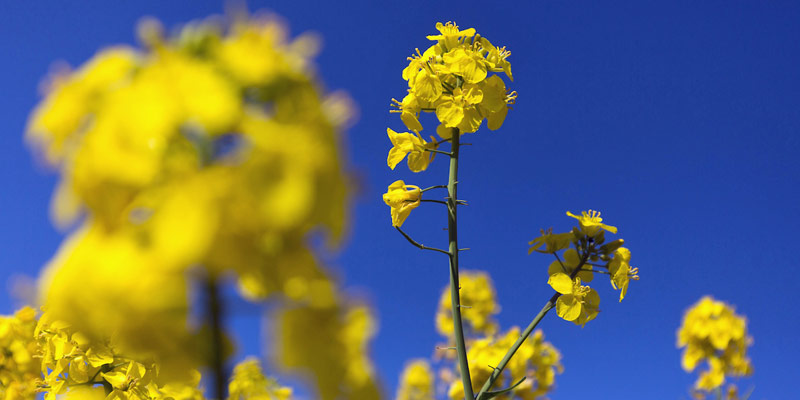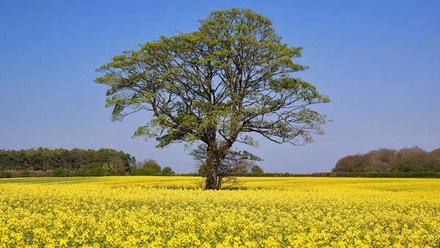AIC unites with supply chain bodies to reverse UK oilseeds decline

The Agricultural Industries Confederation (AIC) is leading a group of supply chain stakeholders to support the UK’s struggling oilseeds sector and find ways to increase the area grown domestically in the face of current challenges.
For more than a decade, the UK-grown area of oilseeds has been in decline.
This has largely been driven by the withdrawal of neonicotinoid crop protection products in 2013, as well as agronomic and climate pressures, resulting in a 59% drop in the oilseeds area.
In a bid to reverse this trend and give UK growers greater confidence to produce oilseeds, the agri-supply trade association AIC has united with other industry bodies that represent the supply chains which feed the nation.
Stakeholders working with AIC include the Agriculture and Horticulture Development Board (AHDB), the British Society of Plant Breeders (BSPB), CropLife UK, the Food and Drink Federation (FDF), the National Farmers Union (NFU), and the Seed Crusher and Oilseed Processors Association (SCOPA).
Rose Riby, AIC’s Head of Combinable Crops and Seed, said: "There is a ready domestic market for oilseeds with demand for edible oils and high protein meal for animal feed.
"The current homegrown crop does not even meet half of this demand, so there is a great opportunity and a need to support a reversal in the long decline of oilseeds.
"What’s more, supply chains are seeking to become less reliant on imported animal feed materials, while also making our food system less dependent on imported palm and sunflower oil."
To mitigate this decline in home production, imports of oilseed rape have risen substantially in recent years to meet demand, meaning the UK has become a net importer of rapeseed.
Collaborative approach
AIC has kickstarted collaboration with this new stakeholder group to discuss how the Government can be engaged to support many strategic aims to improve domestic productivity.
Rose Riby added: "Given that we now have a Minister for Food Security and a recently elected Government with priorities including improving cropping diversity and pollinator numbers, this stakeholder group believes that now is a crucial time to push this advocacy work together."
The group of trade bodies will work together to lobby MPs and government officials, as well as inform wider stakeholders including think tanks, NGOs, and the media oilseeds sector facts.
This work complements the industry's ongoing efforts in research, agronomy practices and knowledge exchange led by United Oilseeds.
Commenting on this initiative, United Oilseeds Managing Director James Warner said: "As the OSR Reboot gains momentum, we're delighted to see AIC further advancing the conversation.
"There is significant work happening behind the scenes in agronomy and research, and having the industry's leading supply chain trade association, with their extensive expertise, helping to shape and influence future policy in this area is a true game-changer."
Next steps
Following productive initial talks, the group will reconvene in early autumn to make a clear and compelling case for increasing the UK oilseeds area, with practical measures that can be taken to achieve this.
These will include reducing barriers to trade, improving the regulatory regime for crop protection, and incentives that could be taken up under future farming and land management schemes throughout the UK.



